As summer finally draws to a close and parliament re-opens, the news over here has been dominated by the goings on in Westminster. And this is before the Members of Parliament (MPs) really get back to work.
The story that has caused the greatest stir is the news that the UK’s MPs are to vacate the Houses of Parliament for approximately 6 years, in order that renovations to the building can be carried out. It sounds like a fairly simple procedure but there are lots of layers to the story, hence the furor.
Firstly, the backstory: the Palace of Westminster, which holds both the Houses of Parliament (the MPs’ chamber) and the House of Lords (for both hereditary and appointed peers), is at the heart of British politics. The buildings, however, are old and tired, with insufficient health and safety measures. Recent years have seen pipes burst, rooms flooded and asbestos problems. The building - a UNESCO world heritage site - has a rich and complicated history: it was first built in the eleventh century, and has been subject to many changes over the years. The last renovations took place sixty years ago. Last week, it was announced that both MPs and peers will relocate between 2022 and 2028.
Palace of Westminster, London - Feb 2007
The reason for the commotion is largely due to the cost. Reports vary - emblematic of the hysteria surrounding the story - but flit between £4bn and £7bn (that’s $5.2 billion and $9.2 billion). This cost will be footed by the taxpayer, and as such, the taxpayers are broadcasting their (largely ungenerous) views on the planned refurbishment, stating that costs are unnecessary, and the purpose of the Palace is anachronistic.
Despite these objections voiced by the members of the British public and the national press, it is essential that we support the renovations. The Houses of Parliament—whether or not you sympathise with the politics that it accommodates, or the system that it houses—is integral to British history and our cultural heritage. It would be sheer folly to acquiesce or to believe that we should sever ourselves from our political history, for the sake of Progression. Progression, instead, is renovating the Palace of Westminster, so that it can sufficiently foster our country’s democratic representatives.
From the building itself to the politicians within it, former Prime Minister David Cameron has shocked the public this week by announcing that he is set to resign as MP for his Oxfordshire constituency Witney, with immediate effect. Cameron’s resignation will trigger a by-election, whereby the constituency will hold a mini-election for Witney, in order to fill the vacancy.
David cameron annouces resignation (cropped)
In a television interview, Cameron said that he supported Theresa May’s government ‘I think she’s got off to a cracking start’ but that ‘I have my own views about certain issues. People know that. That’s really the point. As a former PM it’s very difficult to sit as a back bencher and not be an enormous diversion and distraction from what the Government is doing. I don’t want to be that distraction.’ May similarly spoke out in support of Cameron, saying that she was ‘proud to have served’ is his government and that under Cameron, the Conservative Party ‘achieved great things,’ namely ‘stabilising the economy’ (following the global crash of 2010) and ‘delivering serious social reform’ (not so many obvious examples for this particular claim).
The public seems to be somewhat nonplussed by Cameron’s resignation, despite the initial shock. Witney is largely considered to be a Conservative stronghold, so Cameron’s decision to stand down almost certainly won’t upset representation in the House of Commons. Sadly, despite Cameron’s various successes, he will probably almost always be remembered for his inability to successfully keep his country in the European Union, and as such, his quiet exit from Westminster is comparatively insignificant.

5

Churchill portrait NYP 45063
A final note on political matters is the news that the National Trust has launched a £7.1 million ($9.4 million) appeal to buy former Prime Minister Sir Winston Churchill’s personal objects. The Trust, which aims to raise the funds by January of next year, told the press that this appeal was one of the ‘biggest we have ever made to safeguard a collection of this kind.’ The heirlooms are currently housed at their original domestic setting, Grade I-listed house Chartwell, Churchill’s home in Kent. Half the collection of Churchill’s objects is currently under the ownership of the National Trust.
Churchill is much-loved by the British public - not only as a wartime hero. His career spanned decades of progression for British history: Churchill was involved in one of the last British cavalry charges at the Second Battle of Omdurman in 1898 and the arrival of the first British nuclear weapon in 1952. Unlike American presidents, twentieth century British prime ministers have tended to have ‘props’ that they are photographed with. Those without props have sunk without trace (anyone remember Andrew Bonar Law?). Instead, consider Anthony Eden and his homburg hat, Harold Wilson and his pipe, and Margaret Thatcher’s handbag. Churchill is largely portrayed as firmly attached to a cigar and a glass of brandy. It remains to be seen if his cigar collection or indeed his balloon glasses (traditional brandy glasses) will be in the sale, but items thus far listed includes a library of inscribed books, a box of hair brushes made from the wood from a World War II battleship and Churchill’s Nobel Prize for literature.
[caption id="" align="alignleft" width="128"] Sue Perkins[/caption]And from history to the modern age, newspapers this week were gripped by the news that popular television show The Great British Bake Off is set to move to Channel 4 after the British Broadcasting Corporation (BBC) has lost a bidding war to keep the show, losing two popular hosts with it. Presenters Mel Giedroyc and Sue Perkins announced that they would cease to work on the show, known as Bake Off, after the current series. It remains to be seen whether judge Mary Berry will continue on the show. Bake Off has become something of a cult in Britain, capturing the imagination of Brits of all ages and all walks of life and, more impressively, making baking cool again. Of all our mad crazes and hysterical phases, baking seems somewhat wholesome and to be encouraged - let’s hope that this isn’t the end of Bake Off as we know it.
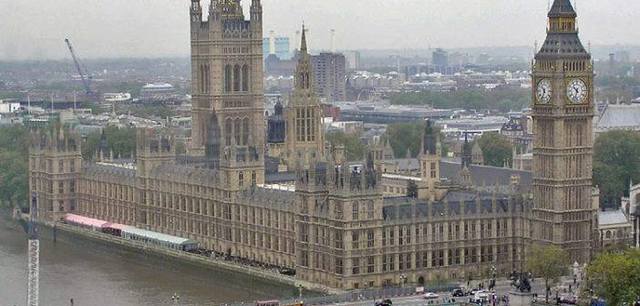







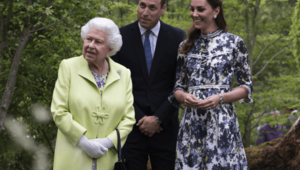
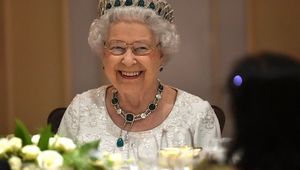
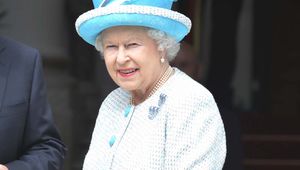

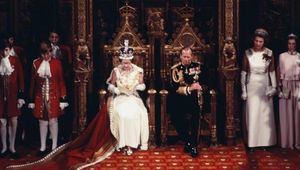

Comments